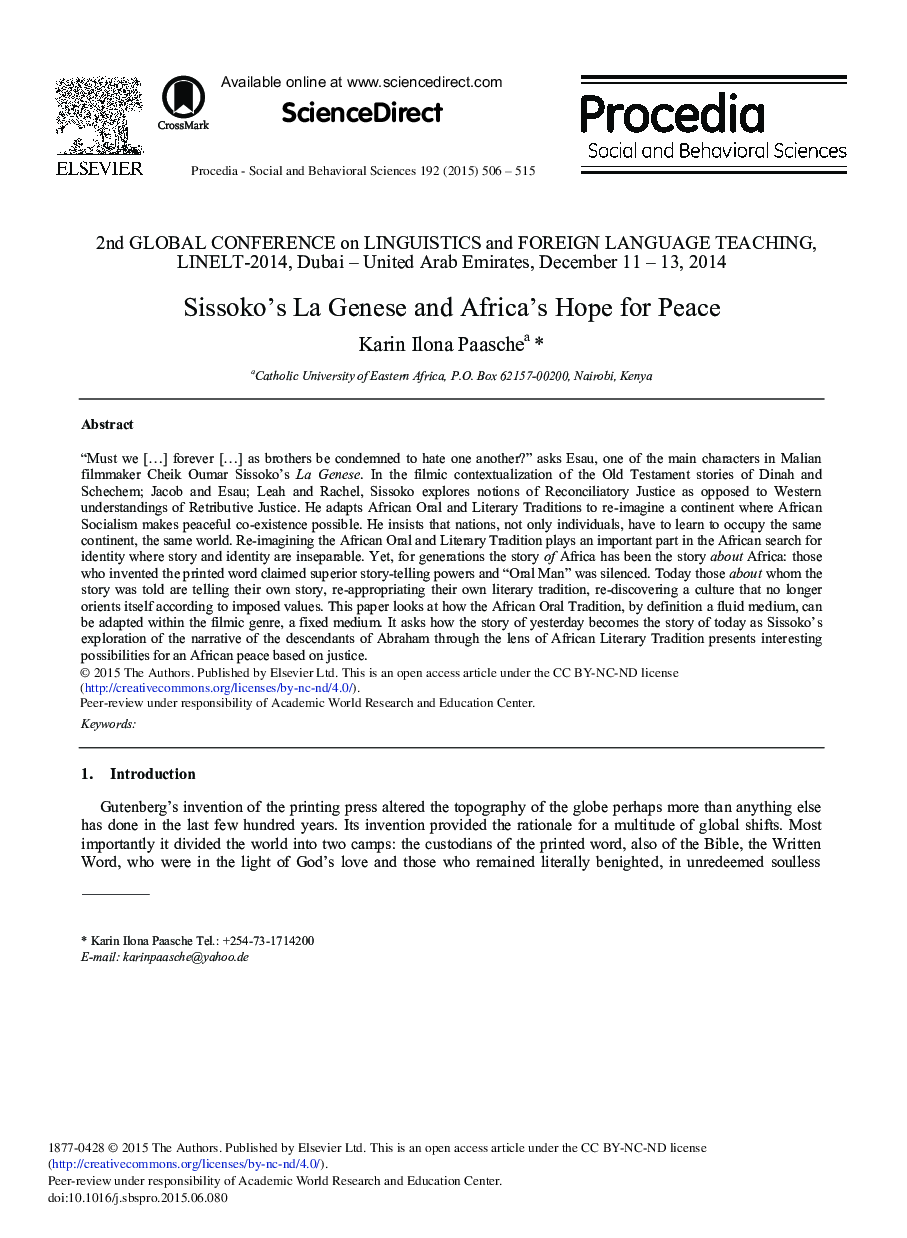| Article ID | Journal | Published Year | Pages | File Type |
|---|---|---|---|---|
| 1109289 | Procedia - Social and Behavioral Sciences | 2015 | 10 Pages |
“Must we […] forever […] as brothers be condemned to hate one another?” asks Esau, one of the main characters in Malian filmmaker Cheik Oumar Sissoko's La Genese. In the filmic contextualization of the Old Testament stories of Dinah and Schechem; Jacob and Esau; Leah and Rachel, Sissoko explores notions of Reconciliatory Justice as opposed to Western understandings of Retributive Justice. He adapts African Oral and Literary Traditions to re-imagine a continent where African Socialism makes peaceful co-existence possible. He insists that nations, not only individuals, have to learn to occupy the same continent, the same world. Re-imagining the African Oral and Literary Tradition plays an important part in the African search for identity where story and identity are inseparable. Yet, for generations the story of Africa has been the story about Africa: those who invented the printed word claimed superior story-telling powers and “Oral Man” was silenced. Today those about whom the story was told are telling their own story, re-appropriating their own literary tradition, re-discovering a culture that no longer orients itself according to imposed values. This paper looks at how the African Oral Tradition, by definition a fluid medium, can be adapted within the filmic genre, a fixed medium. It asks how the story of yesterday becomes the story of today as Sissoko's exploration of the narrative of the descendants of Abraham through the lens of African Literary Tradition presents interesting possibilities for an African peace based on justice.
